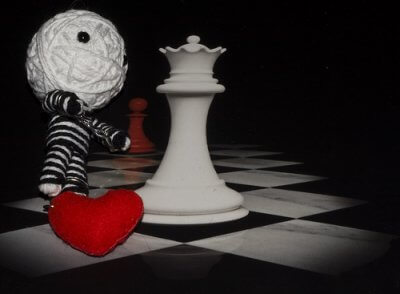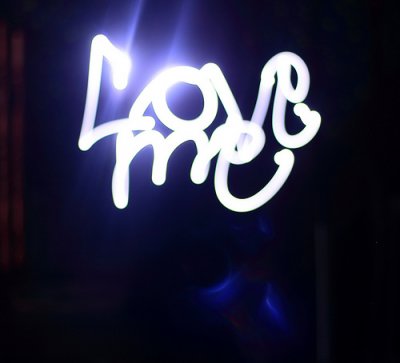What is Love Addiction? (And Do We All Suffer Now and Then?)

By: marc falardeau
How could love be addictive? Isn’t it supposed to be a good thing we all want?
Love is a broad term. And the ways we throw around this term in modern day society aren’t always about love at all.
This becomes very clear when it comes to what is referred to in psychology as ‘love addiction’.
What is love addiction?
First of all, we need to clarify what ‘addiction’ is.
Addiction happens when we have a habit that we are unable to control. Because we are not in control, the habit takes over our attention to the point that other parts of our life suffer. Our daily routine becomes more and more of a challenge. Another strong marker of an addiction is secrecy and feelings of shame.
So then what is love addiction?
Love addiction is a dysfunctional way of seeing relationships and/or behaving within relationships that is unconsciously used to avoid facing our real self – complete with our real pain, our real responsibilities, our real needs, and our real personal power. Such is our need to avoid ourselves that these ways of seeing and behaving in and around relationships grow to dominate our lives and control us.
When we are a love addict, we look to romance or to another person to provide these things we are unconsciously refusing to provide for ourselves. We want a big romance or the object of our affections to give us self-worth, safety, and purpose.
I don’t get it – What is Healthy “Love” Then?

By: Rachel Hofton
When we are a love addict we make an unconscious contract with other people – you take care of my feelings and make me feel good, and I’ll take care of yours.” We think it’s the other person’s job to make us feel happy and whole. We don’t realise that this is a dangerous, soul-destroying game.
In her popular book, “Is it Love, or Is It Addiction?”, psychologist Brenda Schaeffer puts it this way, “Rather than a bonding, it [love] becomes a psychological bondage.”
In a healthy relationship, you realise that you can care for another person, and help them in practical ways while doing your best to support them. But their feelings and their sense of completeness are up to them, and yours up to you. Nobody ‘owes it to you’ to make you feel good or whole. Rather, you owe it to yourself, and make consistent steps to achieve it.
The different types of love addiction
Some divide love addiction into different strands, which you can have one or several of. These include:
- love addiction
- romance addiction
- people addiction
- sex addiction.

By: JoyceNL
These differences mean you don’t even have to be in a relationship to be a love addict. You might just be addicted to romance books, or a fantasy about a co-worker.
We’ll talk about these types of love addiction in another article (sign up to our blog now to receive alerts when articles are posted, if you haven’t already.)
The symptoms of love addiction
There are two ways to look at symptoms around love addiction. There are the symptoms that a person is a love addict, and the symptoms that arise within addictive relationships.
If you are a love addict, you’ll notice several of the following symptoms in the ways you relate to others and behave:
- needing to be liked and noticed, even by strangers
- trying to always be what others want
- having troubles setting and maintaining boundaries
- fear of abandonment but also fear of commitment
- difficulty being yourself and instead always pleasing others
- seeing giving as a transaction, and always expecting a return
- low self-esteem, however well hidden
- hidden core beliefs/fears you are not worthy of love, you’ll never be loved, nobody likes you
- intimacy issues, where you hide your real self and fear being fully seen
- manipulating others with psychological games (often for attention)
- demanding love, loyalty and attention from others (even if you don’t return it).
Within addictive relationships, you will notice signs like:
- always letting your own goals and hobbies drop when in a relationship
- a cycle of highs and lows where you feel good with the person, but panicked or off-kilter without them
- unable to stop thinking about him/her to the extent your work, social life, and even health suffers
- constantly needing contact in the form of texts, emails, phone calls
- needing the other person’s approval and always trying to be what he/she wants
- a palpable fear at the thought of being without them (you might even worry about them dying)
- an inability to walk away from a relationship even when at heart you know it’s not good for you
- experiencing constant colds and flus or physical issues
- hiding things and even lying to family and friends about the relationship.

By: Anne Cherry
Isn’t falling in love ALWAYS addictive at first?
It’s true that the chemical hit set off by falling in love can leave us feeling ‘high’ at first.
It’s also true that our modern society and acceptable norms means that many modern relationships do have elements of codependency and counter-dependency, especially amongst younger generations.
Modern media, whether film, TV, or music, encourages us to seek the ‘one’ who will suddenly make life perfect, who we are supposed to then want to spend all our time with. Love is supposed to hurt, to be our everything.
Social media doesn’t help, with far too many people bending over backwards to present their relationships as fairy tale romances, when the reality is sure to pale.
Modern parenting, and our lack of communities to give children different demonstrations of healthy relating, might encourage children to grow up to be love addicts. To naturally come to be a healthy view of love would require a healthy childhood where you received the love and unconditional support to develop healthy attachment. Busy parents without time for children can mean we learn to manipulate for attention. On the other hand attachment parenting taken too far can mean children expect others to meet their needs.
But with age and self-development, if we are healthy we realise that relationships are not an answer to our problems. Those answers are things we have to find for ourselves. We realise relationships are best based on interdependency, where two people love and help each other but also love and take care of themselves. You keep up your own interests, and know how to meet your own needs.
What do I do if I have love addiction?
Love addiction can be life destroying. We can exist in endless and exhausting cycles of highs and lows, and feel deeply ashamed of what we hide from family and friends.
But the good news about love addiction is that is is highly treatable. Talk therapy can really help you understand the ways your core beliefs about your self worth are driving your relationship choices, what your patterns of relating are and how they formed, and how you can start to approach love and romance in healthy, more empowering ways.
There are many types of therapy that can help with love addiction, and a good start is to read our article on “The Types of Therapy That Help With Love and Relating“.
If your love addiction involves endless short relationships with lots of push-pulling and dramatics, and you think you might also have borderline personality disorder (BPD), consider trying schema therapy, dialectical behavioural therapy (DBT), and/or transactional analysis.
Harley Therapy connects you with highly experienced therapists who can help you with love addiction. Try one of three central London locations, or do online therapy anywhere you are in the world.
Still have a question about ‘what is love addiction?” Ask in our public comment box below.




